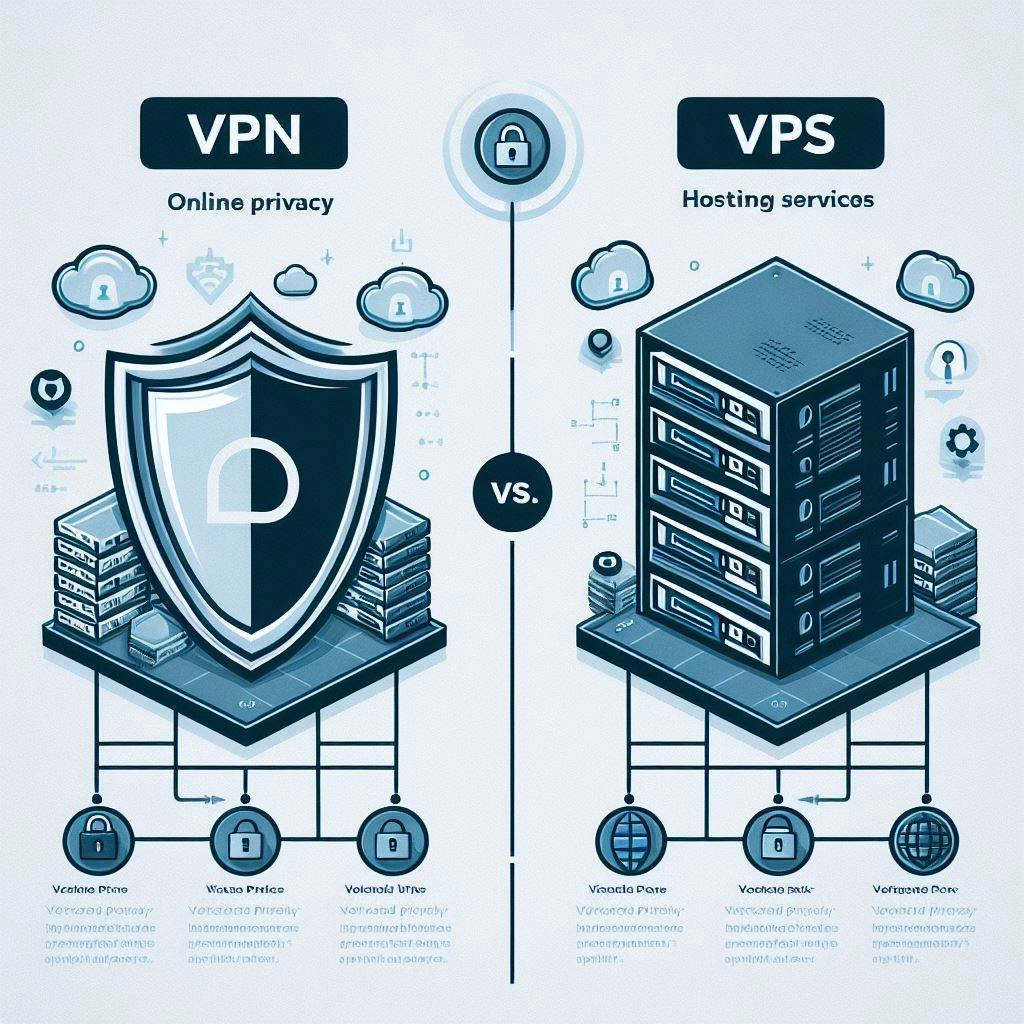VPN and VPS: what are the differences?
Content of the article

You may have come across the terms VPN (Virtual Private Network) and VPS (Virtual Private Server), and you've probably noticed their similarities. But despite the similarity in names, these technologies are different in their purpose and functionality. Let's look at them in more detail so you can make an informed decision about which one is best for your needs.
VPN or VPS: considering the details
VPN, or virtual private network, is a technology that provides secure and private Internet connection. By connecting to a VPN, your Internet traffic is encrypted and routed through a special server, which protects your online activity from unscrupulous individuals.
The main advantage of a VPN is its ability to provide a secure and anonymous connection to the Internet. This is especially useful when you work through open Wi-Fi networks or want to bypass geographic restrictions to access certain types of content.
VPS, or virtual private servers, are virtual machines that are hosted on a remote server and have various uses. One of the common forms of using VPS is web hosting, which provides you with virtual space on a real server. The main distinguishing feature of VPS from regular web hosting is that the user has absolute autonomy over his server, including the ability to install his own software and configure resources as he wishes.
VPN's capabilities are more adaptive and scalable than classic web hosting, making it an attractive choice for those who need more control over their online projects.
VPN and VPS: what to choose?
When it comes to creating a secure and convenient online experience, the choice between VPN and VPS becomes important. However, before making a decision, it is useful to understand the significant differences between these two technologies:
- VPN: security and privacy are a priority. Serves to provide secure and private access to the Internet. It works by encrypting traffic and hiding your IP-address , which ensures data protection from unauthorized access. The main purpose of a VPN is to ensure the security of your online connection and protect your private information from external threats.
- VPS: flexible and powerful hosting. Provides you with virtual space on a real server where you can install and manage your software and applications. It offers more adaptability and management tools than regular web hosting. The most popular purpose of VPS is to host websites and applications with the ability to customize and scale.
When choosing a VPN or VPS, it is important to consider your specific needs and goals. If your main goal is to ensure security and privacy while browsing the Internet, a VPN will be the best choice. On the other hand, if you need powerful hosting for your online projects with flexible configuration options, your choice is VPS.
As a result, solving the problem of choosing a VPN or VPS depends on specific tasks and goals. Weigh the pros and cons carefully and make the decision that best suits your specific use case.
Private VPN server: a great option for your online comfort
If VPN and VPS are not suitable for you to solve specific problems, consider the private VPN server service, which will perfectly help you in matters of your own secure and private network infrastructure. A private VPN server provides a unique opportunity to create your own secure environment for transmitting data on the Internet. It is ideal for those looking for a more flexible and customized solution that can be customized to meet their specific online security and privacy needs.
You can buy or rent a private VPN server on Private VPN server. This solution will provide you with a reliable, anonymous, secure and stable connection when accessing any resources on the Internet, no matter where you are. Detailed information about getting a private VPN server can be found on this website, as well as detailed descriptions of various aspects of VPN technologies in the section articles about VPN.